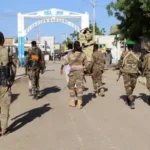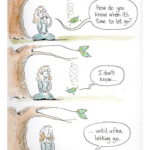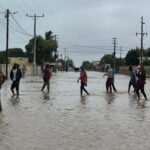Recently, the United States government sounded the alarm over Zambia’s newly enacted Cybersecurity and Cyber Crimes Act, a law that could pose significant challenges for Americans travelling to or doing business in the southern African country. As nations around the globe grapple with the complexities of safeguarding digital spaces, Zambia’s law has drawn scrutiny due to its broad provisions and potential implications for fundamental freedoms.
An Overview of the Law
Signed into law in 2021, the Cybersecurity and Cyber Crimes Act was designed to address issues of cybercrime and to enhance national security in Zambia. Among its provisions, the law establishes a framework for monitoring online activities, imposing severe penalties for cyber-related offenses, and granting authorities extensive powers to control internet usage and access information.
Critics have raised concerns that this law could be misused to stifle freedom of expression, especially with its vague definitions of offenses. Moreover, the law grants law enforcement agencies expansive surveillance capabilities, potentially compromising the privacy rights of both Zambians and foreign visitors, including Americans.
U.S. Response to the Law
In light of these developments, the U.S. Department of State issued a travel advisory, urging American citizens to exercise caution when engaging in digital activities while in Zambia. The advisory specifically warns travelers about the risks associated with social media use and other online communications. Americans are advised to be vigilant in protecting their personal information and to avoid online behaviors that could inadvertently breach Zambian cyber laws.
This warning is particularly important as Zambia moves towards implementing monitoring measures, which can include tracking online conversations and analyzing the data of internet users. The potential for arbitrary enforcement of these laws raises serious concerns about the safety and well-being of American citizens abroad.
Impact on Freedom of Expression
The Zambian Cybersecurity Act has elicited fears of a chilling effect on free speech, a concern that the U.S. government has highlighted in its advisory. Reports indicate that the law’s potential misuse to suppress dissent, particularly against political opposition, has heightened tensions in a country already grappling with challenges related to press freedoms. Journalists and activists may find themselves under increased scrutiny, leading to self-censorship and further undermining democratic norms.
For Americans involved in media, journalism, or advocacy during their time in Zambia, understanding and navigating these risks is critical. Engaging with content that could be interpreted as critical of the Zambian government may lead to serious legal ramifications, exposing them to arrest and prosecution.
Recommendations for American Citizens
In light of these developments, the U.S. government encourages Americans to adopt a series of best practices while in Zambia. This includes:
- Using Secure Communications: Employ encryption tools to protect sensitive conversations and information. Avoid sharing personal data or engaging in discussions about politically sensitive issues.
- Staying Informed: Regularly check official sources, including the U.S. State Department website, for updates regarding travel advisories or changes in local laws.
- Limiting Public Exposure: Exercise discretion when posting on social media or engaging with local news platforms, as online activities may be monitored.
- Engaging Local Legal Counsel: If individuals or businesses are planning long-term stays or operations in Zambia, consulting with legal experts familiar with the local law can provide insight into navigating the complexities of the Cybersecurity Act.
Conclusion
As the global digital landscape continues to evolve, so too do the laws that govern it. The U.S. government’s warning signals the importance of remaining informed about international legal frameworks that impact privacy and security. By understanding and adhering to these regulations, Americans can better protect themselves while engaging in travel and business within Zambia.
Email Us on editorial@nnafrica.com













